Needs and impact survey insights
June 2023
Jasmine B. MacDonald, Eliza Cotton
The AIFS Child Family Community Australia (CFCA) information exchange team is committed to engaging with everyone in the child, family and community sector. The sector does important work to support Australian families. We aim to provide you with reliable evidence to inform practice and improve outcomes for the people you work with. To do this, we need to understand the practice topics most relevant to you and your work, and how you want to receive information. One of the ways we get this information is through our annual Needs and Impact Survey. Our most recent Needs and Impact Survey was open for responses from 14 November to 12 December 2022.
This short article provides a summary of the findings from the November–December 2022 survey and how we plan to turn these insights into meaningful resources.
Who responded?
The survey received 658 responses from a range of child, family and community sector professionals. There were 188 full responses and an additional 470 partial responses from across all Australian states and territories and some international regions.
Responses came from across the sector, including from people working in service delivery, policy, research and evaluation. The top three organisation types in your responses were family support service, education and training, and health services (refer to the figure below). Survey respondents were most likely to be employed as clinicians, caseworkers or coordinators/team leaders.
As a group, survey respondents had a large amount of experience within their organisations or areas of practice. The most common response was 10+ years of experience (41.3%). The majority of respondents (59.3%) had been working in the same organisation or area of practice for more than 6 years.
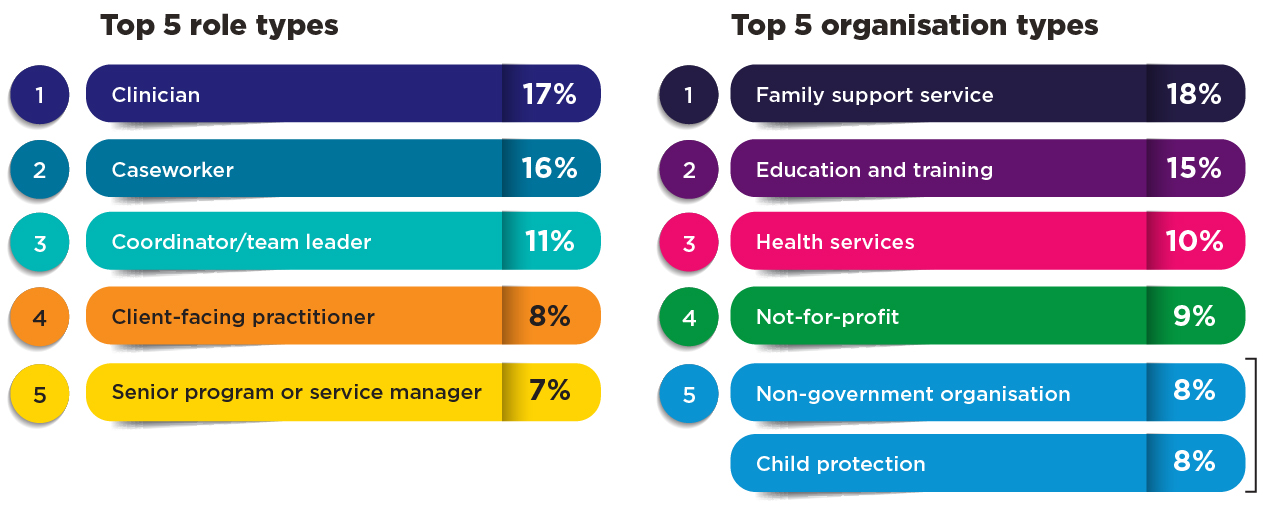
What you told us
Areas of practice you were interested in
We provided a list of 22 high-level practice topics and associated subtopics and asked you to select any or all areas where you need evidence-based resources. More than half of respondents were interested in parents and parenting, mental health and wellness, domestic and family violence, adolescents and young people, and child abuse and neglect. The figure below shows the top 10 areas of interest and the percentage of those saying resources are needed on these topics.
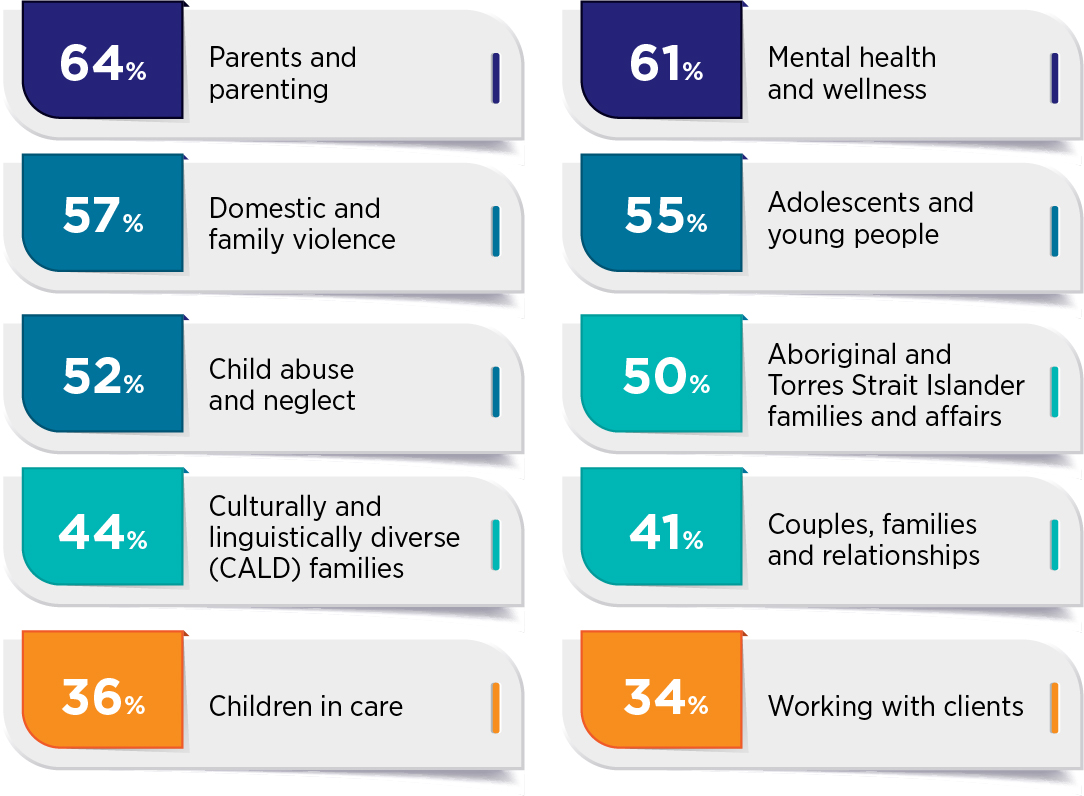
The next figure compares the top 10 ranked practice topics in our November 2021 survey and the current November–December 2022 survey, showing shifts within overall rankings across the 12-month period. The topic areas with the greatest increase in interest were parents and parenting, adolescents and young people, and culturally and linguistically diverse (CALD) families (each moving up four places).
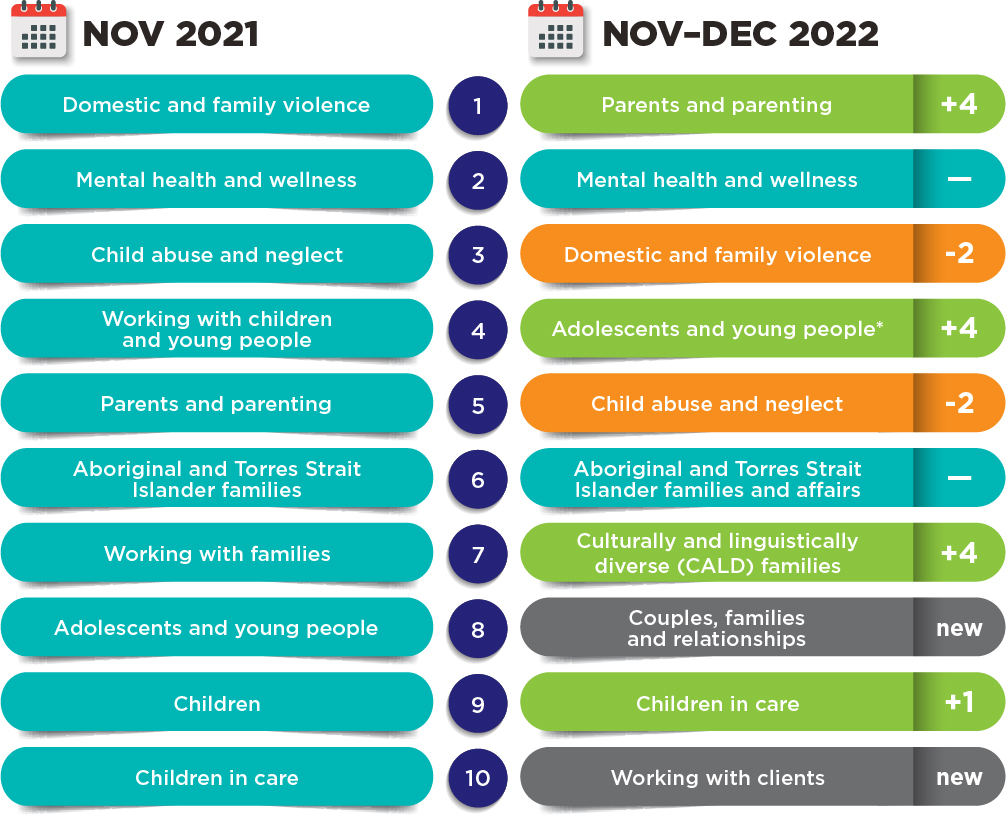
Looking more closely at the subtopics you are interested in (from within the high-level topics), we can see that the majority of you would like to know more about:
- mental health and wellness, including:
- trauma, suicide and self-harm
- treatment and counselling
- addressing the needs of adolescents and young people
- interventions and prevention strategies for domestic and family violence (DFV)
- post-separation parenting
- parenting experiences for both mothers and fathers
- child protection and abuse prevention.
Additional areas of interest that respondents consistently wanted more resources on included:
- examples of success stories and positive approaches
- the effects of DFV on child mental health and wellbeing
- understanding the effects of multiple co-occurring issues
- addressing intersectionality across different topics and demographic groups. Some of the most frequently mentioned intersections included:
- supporting parents and social inclusion in CALD families
- inclusion, mental health and wellbeing for people with disability and their supporters.
How you want to receive information from us
We asked which CFCA resources support you to use evidence in your work. Webinars were rated as the highest for supporting evidence use, followed by online written resources and the newsletter. Our helpdesk service was least likely to be used for support (refer to the figure below).
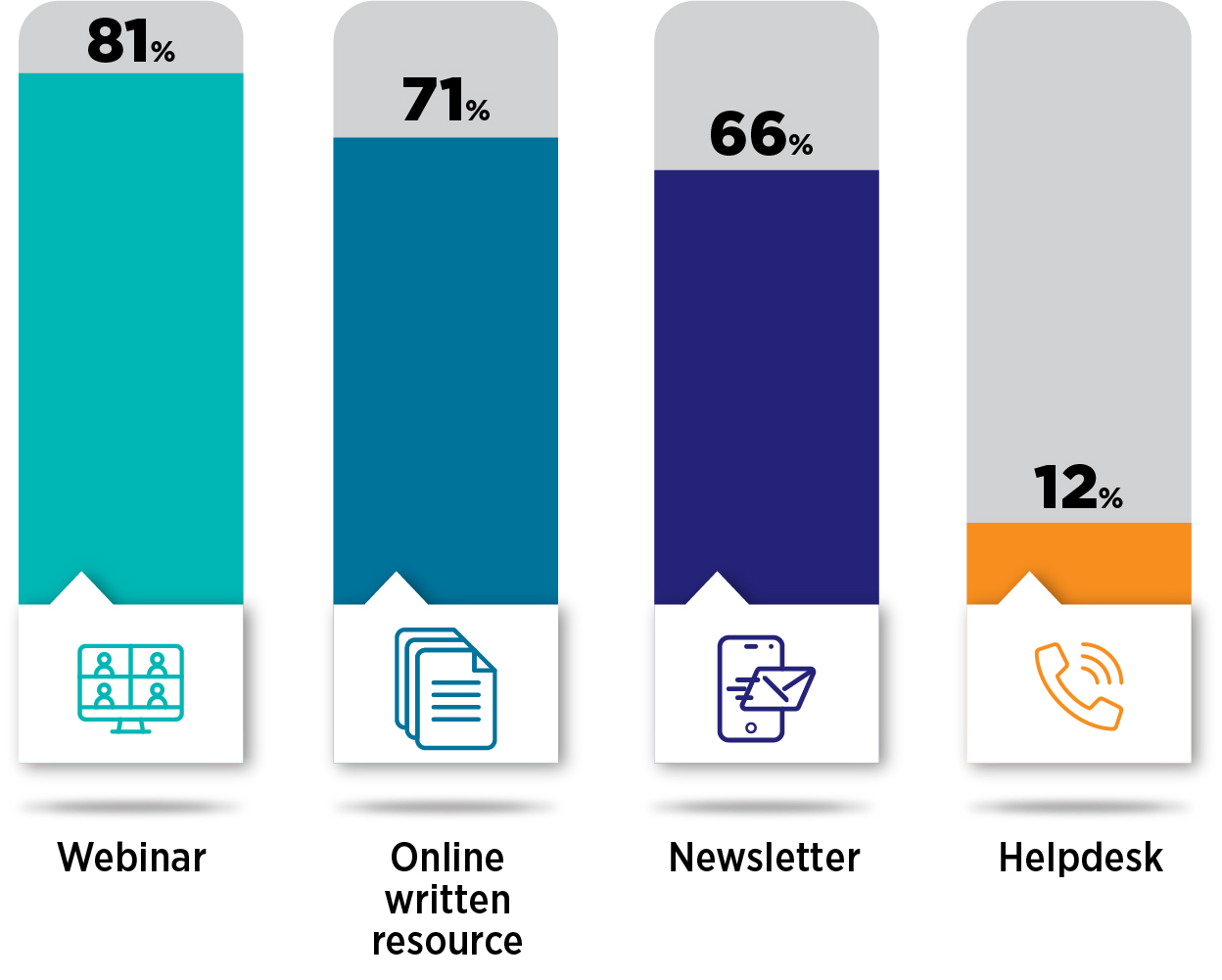
Webinars were the most highly rated resource across the top three respondent job types (clinician, caseworker and coordinator/team leader). Online written resources and the newsletter were more useful for clinicians and caseworkers, while coordinators/team leaders found the newsletter more useful. The helpdesk was used marginally more often by coordinators/team leaders.
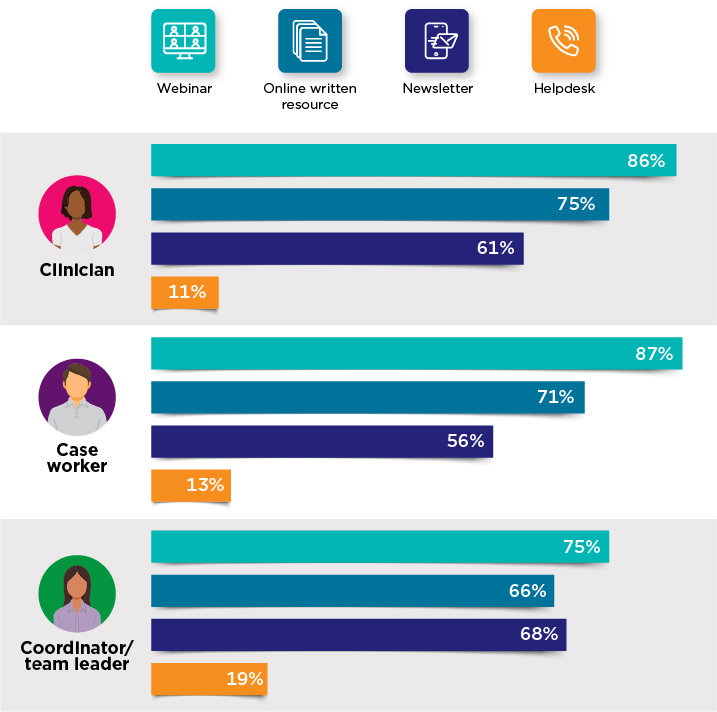
CFCA Helpdesk
If you are not familiar with the helpdesk, CFCA offers a free research and information helpdesk for child, family and community welfare practitioners, service providers, researchers and policy makers. We can help you with enquiries related to the latest stats and facts, evaluation advice, research findings and practice/policy pointers.
You can access the helpdesk using this web form. Alternatively, if you have used our helpdesk and would like to provide feedback on your experience, please feel free to contact us via email.
How we will use this information to inform the development of resources
Over the coming months, we will undertake further consultation on the practice topics that you have identified as important, with the help of our Critical Friends Network of people working in or with the child and family service sector. We will also look closely at feedback about how you use our resources and what kinds of resources you find useful. We are looking forward to using the insights provided to guide the development of new resources that can support you to use evidence in practice. We will continue to conduct rigorous evidence reviews on the topics most important to you, to produce coordinated sets of resources including practice papers, practice guides, resource sheets, short articles and webinars.
The CFCA team would like to thank everyone who completed our survey. For anyone who was not able to participate and would like to get in touch, please contact us, or look out for our next Needs and Impacts Survey in the second half of 2023. We will let you know when the survey is open via our newsletter. You can subscribe to our newsletter.
© GettyImages/FG Trade